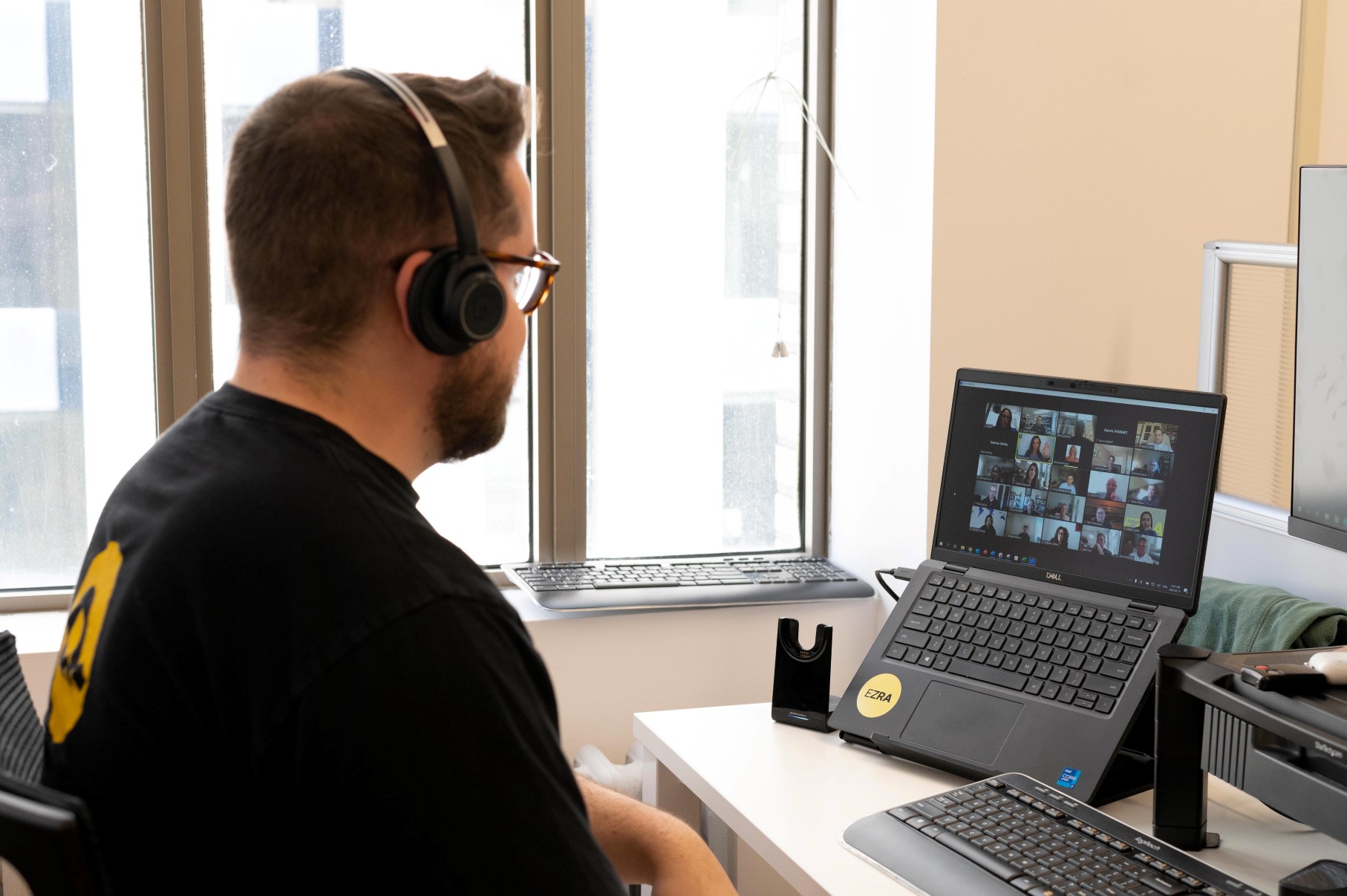Imposter Syndrome at Work: How to Deal With It

We’ve all experienced the feeling of being ‘an imposter’ to some extent. But what exactly is imposter syndrome, how can you identify if you’re experiencing it, and how can you deal with it at work?
What is imposter syndrome?
Imposter syndrome at work is the feeling of self-doubt and incompetence in your abilities. This uncomfortable feeling is actually most commonly found in high-performing individuals who find it hard to accept their achievements despite their successes. In some cases, people who experience work imposter syndrome have a dread of being exposed and ‘found out’ as a ‘fraud’ despite the evidence that they are clearly not. This feeling of being an imposter can be detrimental to you in a workplace setting, reducing your confidence and, in some cases, affecting your performance. So, overcoming it is vital to a successful and happy career.
Common characteristics of imposter syndrome
First off, how can we identify if we or someone else is experiencing imposter syndrome at work? Well, there are several characteristics to look out for:
Inability to assess your own abilities and skills
Accrediting any success to factors other than yourself
Undermining your successes
Being overly critical of your performance and becoming a perfectionist
Overachieving
Developing a fear of failure
Self-doubt, lack of confidence, and feelings of anxiety
Becoming nervous of expectations
Burning out from working too hard
Setting high standards and criticizing yourself when you fall short.
Types of imposter syndrome
Imposter syndrome can manifest in many ways. According to Dr Valerie Young’s research, there are five main types of imposter syndrome:
The Perfectionist
The Expert
The Natural Genius
The Soloist
The Superperson
Let’s take a deeper look into these.
The Perfectionist
Within Young’s imposter syndrome theory, as ‘the perfectionist’, individuals may feel that unless something is done to absolute perfection, it could have been done better.
This makes them feel like an imposter because these perfectionistic traits make them believe they’re not as good as they really are, and not as good as others perceive them to be.
The Expert
As ‘the expert’ within this theory, without knowing absolutely everything, individuals can feel like an imposter – if there is more to learn, then they aren’t an ‘expert’ which implies failure. Only when they know everything there is to know about a topic will they feel worthy.
The Natural Genius
Feeling like a fraud or an imposter at work can also be down to the fact that individuals don’t believe they are naturally intelligent – a ‘natural genius’. It might take them longer to learn or pick up something, which then makes them feel like an imposter or a failure.
The Soloist
‘The soloist’ will feel like an imposter if they had to ask for help. Because they didn’t do it alone, they question their abilities and begin to develop imposter syndrome.
The Superperson
Individuals who experience the type of imposter syndrome known as ‘the superperson’ are persons who feel they must be the hardest worker in the room – if they aren’t, they don’t feel worthy and therefore feel like an imposter.
How to deal with imposter syndrome at work
Dealing with imposter syndrome at work can be difficult. You’re essentially ‘unlearning’ your way of thinking in order to believe in yourself – it’s not an easy task! We’ve put together a few pointers on how to overcome imposter syndrome at work, and how to reduce those inadequate feelings. These include:
Positive thinking and self-talk
Aim to excel, not perfect
Learn from your mistakes, don’t fear them
Track your successes
Get a coach to share your struggles with
Positive thinking and self-talk
First things first, acknowledging negative thoughts, challenging them, and deliberately changing these into positive thinking and positive self-talk is the initial step in overcoming the feeling of imposter syndrome. Easier said than done, right? Even if you don’t necessarily believe yourself at first, getting into the habit of changing your thought process is a start to overcoming self-doubt.
Aim to excel, not perfect
Perfectionism is at the heart of why a lot of individuals experience imposter syndrome. So, understanding that perfection is not always achievable is key in reducing feelings of being an imposter at work. A perfect outcome is often impossible or unrealistic. Instead, think about excelling at something, not perfecting it. This gives you so much more freedom to grow and develop as an individual too, something that being a perfectionist can often hinder by its constraints.
Learn from your mistakes, don’t fear them
Making mistakes can be scary, but everyone does it. Instead of fearing these mistakes, embrace them and learn from them. This is key for developing within your career – when you fear making mistakes, you stop challenging yourself, stop trying new things, and prevent creativity. This fear of doing things wrong and not being ‘perfect’ feeds the imposter syndrome, so embracing your mistakes and knowing you can learn from them is key to reducing these feelings of failure and fraudulence.
Track your successes
Collect evidence of your successes and regularly check in on them. Providing yourself with a reinforcer of what you have achieved is a way to show yourself why you’re not a fraud.
Get a coach to share your struggles with
Feeling like an imposter can be very isolating, despite 62% of knowledge workers worldwide having experienced imposter syndrome at some point. But sharing these feelings, like with anything, can you recognize them and overcome them.
Often, speaking to a manager or a work colleague about these issues can be daunting, so having an external coach who is trained in helping people overcome challenges and achieve goals can feel a lot easier and safer; especially for someone who is experiencing anxiety already.